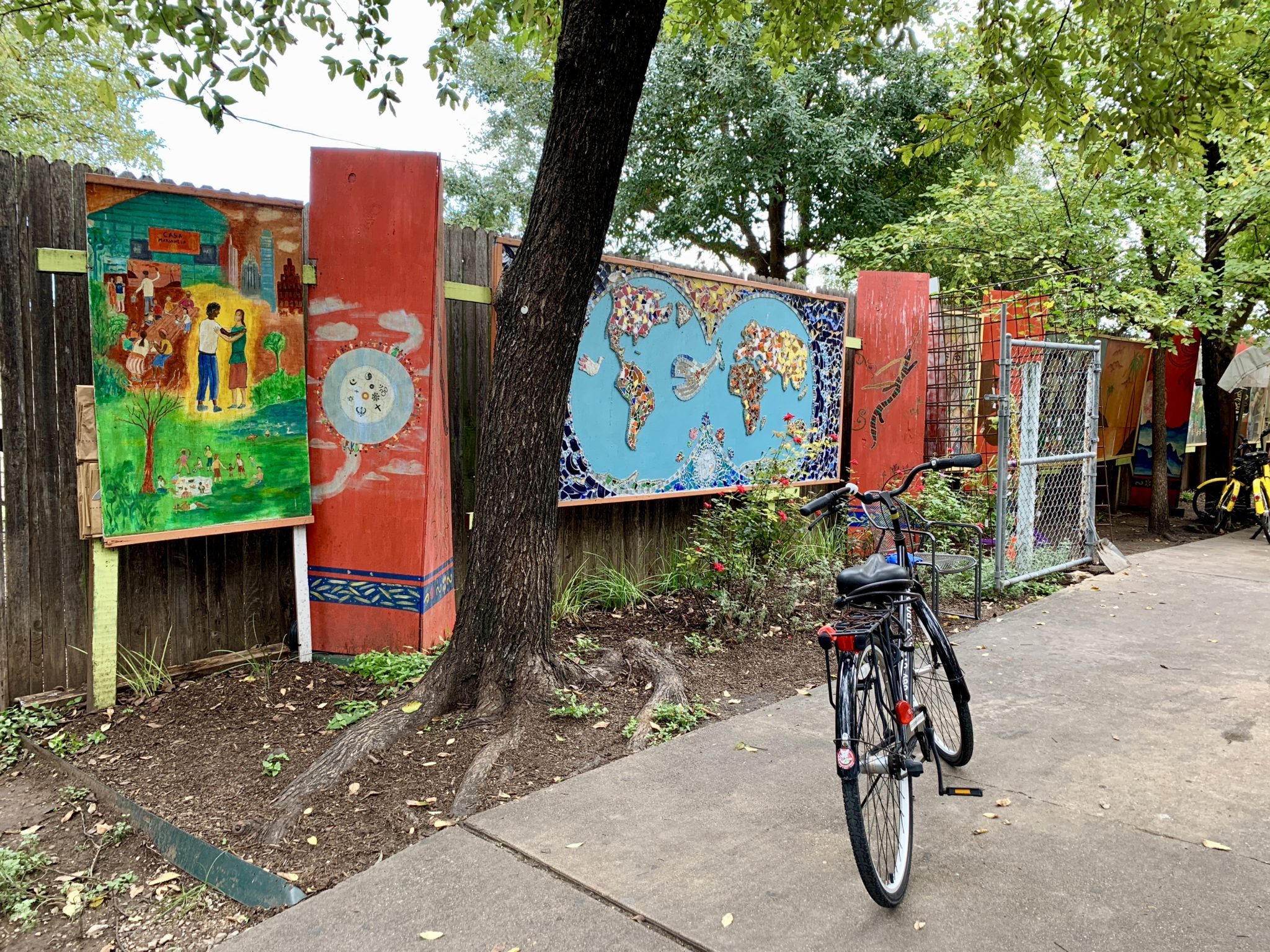Filled with anticipation, I pass under the high shady branches, headed towards the quiet street’s end.
There it is. I immediately recognize the sunflower-yellow siding of the settled home, sitting comfortably behind a short fence enveloped in flourishing plants and vines. I see a man who I believe is a resident, casually sitting at a picnic table on the front driveway. I nervously ask from behind my cloth mask, “Hello. Do you know Jennifer?” Understanding perfectly, he kindly directs me to where he thinks she went. By the end of my first day I will have learned that everyone and their mother in this community knows Jennifer! Residents revere her, not simply because of her role as Director, but because she has a seemingly natural way of making each and every person feel respected and heard. I will come to learn that this philosophy exists throughout Casa Marianella. We are truly an organization designed to uplift Human Dignity, which I witnessed first-hand during my first week of training.
On this quiet, overcast Thursday evening Jennifer and I are setting up Casa’s backyard for a socially distanced gathering. As I grab a soda from the cooler, I think to myself, “I don’t know how the staff here do it. After working 8-10 hours on their feet, they are still willing to stick around on a gloomy evening for a socially distanced goodbye party in the rain!” Right as we take our seats and begin to chat, I notice a couple approaching us from the road. They seem to be dressed nicely, and I immediately assume that they are former residents stopping by to visit. We smile at one another and exchange hellos, but I quickly recognize that they speak Arabic, a language I’m not familiar with. As Jennifer patiently motions them to sit, I feel nervous about understanding and meeting their needs. What if there’s nothing we can do?
Meanwhile, one of Casa’s residents has approached the group and offers to translate for us. Jennifer calmly speaks with the couple, inquiring about their situation. “How can we help you? How long have you lived in the U.S.?” The couple immigrated from Iran a few years earlier. They have adult children who work, but two have lost work as a result of the pandemic. As they struggle to pay the bills and find work, they are also confronted with medical issues and fear the impacts of COVID-19. Although Casa might not specialize in paying bills for community members, Jennifer asks them more questions about themselves and their lives. She’s able to give them the contact information and names of Austin programs that could help them to pay their bills.
As the couple is turning to leave, Jennifer motions to the cooler and says “Would you like a drink? Please take one if you’d like.” During this unconventional way of breaking bread, the lesson of today’s unexpected experience begins to sink in. Jennifer says, “When I can’t offer the resources that someone needs directly, what I can offer is my time and attention.” I think to myself, “I really do always have something to offer to others, even when I don’t completely understand or I don’t have resources. We all have the valuable skill of listening to one another. What an important lesson.”
Now, even in situations when it’s my job to enforce the rules, I remind myself to act and speak with love and respect for the person I’m working with. I think I am naturally afraid that if I don’t understand someone’s language or background, I’m not able to listen to them at all. However, interactions at Casa prove this notion wrong time and time again. We are capable of so much when we are intentional about honoring the Human Dignity in one another. I believe Human Dignity is an innate part of each person that is meant to flourish. When we take the time to listen, empathize, and humbly accept one another, we are empowered to do great things.


This is a wonderful description of your first day at Casa Marianella. You have many more adventures ahead of you. The best part of serving at Casa Marianella is that you can never anticipate what those adventures will be but they all will be special.
So beautifully expressed, Hannah, and such an important lesson for all of us, regardless of the type of work we do or types of people with whom we interact on a daily basis. Thanks for sharing!
I was immediately drawn to your use of the term “settled home,” as that brought to my mind the settlement houses that emerged to help immigrants in New York in the late 1800s.. I think about the people and the organizations who must have helped my grandparents when they left Eastern Europe between WWI and WWII, a time it was a very unsafe to be Jewish in Eastern Europe.. As a descendant of immigrants, one of the reasons I work at Casa Marianella is to help the new generation of immigrants the way other people helped my family..